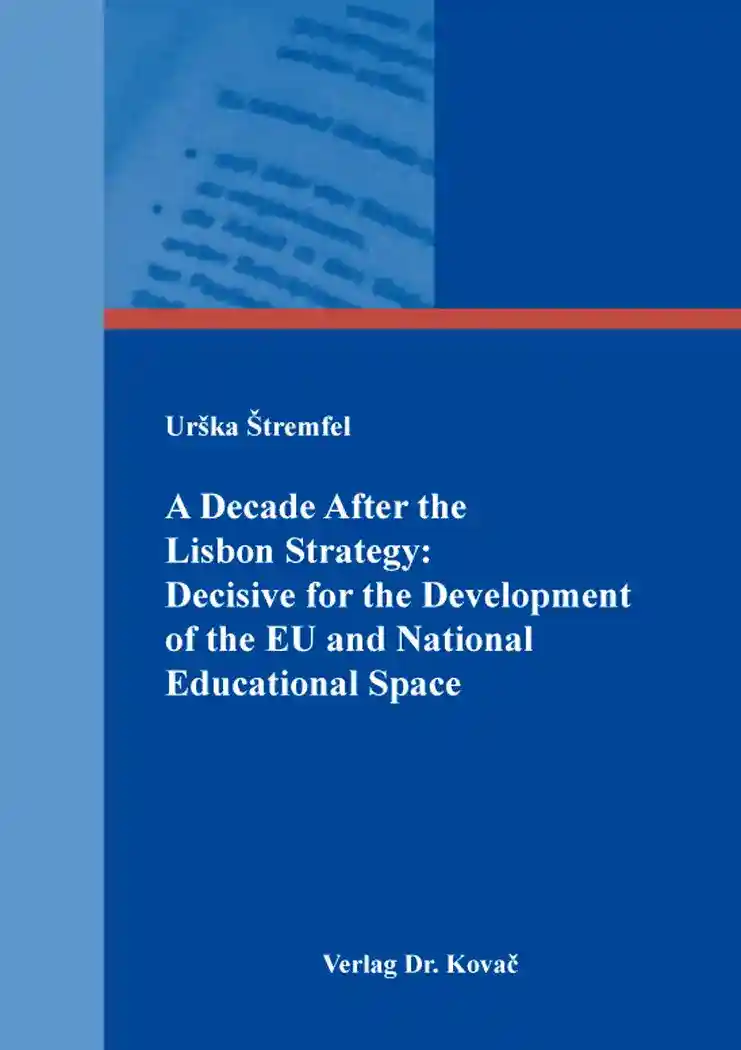Urška ŠtremfelA Decade After the Lisbon Strategy: Decisive for the Development of the EU and National Educational Space
– in englischer Sprache –
Schriften zur Europapolitik, Band 27
Hamburg 2022, 228 Seiten
ISBN 978-3-339-13046-4 (Print)
ISBN 978-3-339-13047-1 (eBook)
Zum Inhalt
For a long time, education had been a more or less neglected policy field in European integration. The Lisbon Strategy (2000) marked the turning point, when education was first recognised as important for the social and economic development of the European Union (EU). Since then, EU cooperation in the field has significantly widened and deepened. Following the implementation of two strategic frameworks for European cooperation in education and training (2000–2010, 2010–2020), in 2020 the European Commission announced that a European Education Area will be established by 2025. This indicates huge and important developments for the policy field, where the principle of the subsidiarity and sovereignty of the EU member states should be respected.
This monograph provides in-depth, comprehensive and critical scientific insights into the processes of Europeanising the Slovenian educational space in the first decade of strengthened EU cooperation in the field of education (2000–2010). By providing a sound theoretical and empirical framework, it fills several research gaps in the field and presents the first decade after the Lisbon Strategy as a decisive period for establishing the European Education Area. Thus, the important added value of this monograph is a reflection of the current social and policy developments and reality from a semi-historical perspective.
In the monograph, we study the open method of coordination in the field of education policy and its influence on member states within a theoretical framework which presents the combination of theoretical postulates of the concept of a new mode of governance as the outcome-oriented governance, governance of comparisons, governance of problems and governance of knowledge, theory of policy learning and the concept of evidence-based policy making. To follow the monograph’s aims we employ the methodological framework, which includes the following methods and techniques: analysis of the relevant literature and secondary sources, analysis of formal documents and legal sources, in-depth semi-structured social science interviews, stakeholder meetings, questionnaires, observation by participation and the analysis of already existing statistical data. A case study of a particular benchmark (reading, mathematic and science literacy) is used to illustrate and explain the studied phenomenon.
